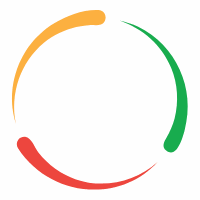Tanzania's Digital Learning Shift
Educational technology, or EdTech, is reshaping education across the globe. In Tanzania, it has become a vital tool to bridge the gaps in access to quality education and create new learning opportunities. From e-learning platforms to mobile applications and online libraries, EdTech is transforming how students learn, teachers teach, and parents engage with the education system. This digital transformation is especially significant in overcoming the long-standing challenges of overcrowded classrooms, lack of resources, and limited access to skilled educators.
The Growth of Educational Technology in Tanzania
Tanzania has embraced educational technology to tackle pressing issues within its education system. Rapid advancements in internet accessibility, smartphone penetration, and digital literacy have made EdTech solutions more practical than ever. Whether in urban schools equipped with high-speed internet or rural communities relying on mobile connectivity, the adoption of EdTech tools is making a difference.
By incorporating technology into education, Tanzania is not just improving classroom experiences but also opening doors for lifelong learning.
Bridging Educational Gaps with E-Learning Platforms
E-learning platforms have been particularly impactful in Tanzania, where many students in rural areas face challenges such as long travel distances to schools and a lack of physical learning materials. Digital platforms offer flexible, curriculum-aligned resources that students can access at their convenience.
- Ubongo Kids: This popular platform combines animated storytelling with educational content, teaching subjects such as mathematics, science, and health. Its engaging videos are tailored to children’s needs and available in multiple languages, making it accessible to diverse communities.
- Shule Direct: A comprehensive digital library offering curriculum-based notes, past examination papers, and interactive quizzes for secondary school students. The platform empowers learners to study independently and bridge gaps in classroom teaching.
- TEN/MET Initiatives: The Tanzanian Education Network equips schools in underserved areas with e-learning kits, including tablets and projectors. They also train teachers to maximize the impact of digital tools.
These platforms have made quality education accessible to students who previously struggled due to a lack of resources or geographic isolation. For instance, a student in a remote village can now access science lessons on their mobile device, significantly reducing educational inequalities.
Enhancing Teacher Skills Through Digital Tools
Teachers are at the forefront of education, and their ability to adapt to technology is crucial for its successful implementation. Educational technology offers solutions to enhance teacher training and provide continuous professional development.
- Teacher Training Colleges Online.
- TEN/MET Training Programs: These initiatives focus on equipping teachers with digital skills, enabling them to integrate e-learning platforms into their daily lessons effectively.
For example, a teacher in a rural school can now take an online module on differentiated instruction, helping them cater to diverse student needs more effectively.
Educational Apps as Powerful Learning Tools
Smartphone adoption is rising in Tanzania, and educational apps are turning these devices into effective learning tools for students and parents alike.
- Smart Darasa and SomaApp:
These apps Smart Darasa and SomaApp effectively offer tutorials, exam preparation materials, and test simulations for secondary school students. They are especially useful for students preparing for national exams, providing structured content and tracking progress.
- Ubongo Kids Play:
Designed for young learners, this app combines games with educational lessons in literacy and numeracy, ensuring children build foundational skills while having fun.
- Eneza Education:
A low-tech solution, this SMS-based platform delivers lessons and quizzes to basic mobile phones, ensuring even families without internet access can benefit.
These apps provide students with personalized learning experiences. For instance, a Form Four student can use SomaApp to revise for exams while receiving instant feedback on their performance.
Accessing Knowledge Through Online Resources
The internet has unlocked a treasure trove of knowledge for Tanzanian students and teachers. From free courses to e-books and academic materials, online resources are expanding learning possibilities.
Khan Academy: A globally recognized platform offering free courses in mathematics, science, history, and more. Students can access lessons at their own pace, making it ideal for both remedial learning and advanced studies.
Coursera: This platform provides affordable professional certificates and degree programs. Tanzanian students can enroll in courses from top universities without leaving their homes.
Open University of Tanzania: As a pioneer in online higher education, this institution allows students to pursue degrees remotely, catering to working adults and learners in remote regions.
By utilizing these resources, a student aiming to learn coding or a teacher seeking advanced teaching strategies can access world-class content without the need for expensive physical materials.
Promoting Inclusivity Through Technology
EdTech’s role in promoting inclusivity cannot be overstated. For students with disabilities, assistive technologies are removing traditional barriers to learning.
- Screen Readers and Braille Keyboards:
These tools enable visually impaired students to access digital content.
- SignWiki Tanzania:
This platform provides educational content in Tanzanian Sign Language, ensuring deaf students receive the same quality education as their peers.
- Leonard Cheshire Disability Initiatives:
This organization collaborates with schools to integrate assistive technologies and train teachers to support students with special needs.
For example, a deaf student can now access science lessons in sign language, ensuring they are not left behind in critical subjects.
The Future of Educational Technology in Tanzania
As technology continues to evolve, its potential to transform education in Tanzania grows. Increased investments in infrastructure, affordable internet, and mobile devices will further enhance the reach and impact of EdTech. Policymakers, educators, and innovators must collaborate to ensure every student benefits from these advancements.
By embracing digital tools and creating inclusive learning environments, Tanzania is setting an example for how technology can be leveraged to overcome educational challenges and build a brighter future for all.
Key Takeaways:
- Educational technology is bridging the gap between rural and urban education in Tanzania.
- E-learning platforms, apps, and digital resources are making quality education accessible to all.
- Teachers and students alike benefit from the flexibility and inclusivity offered by EdTech.
- Continued investment in technology will ensure sustainable growth in Tanzania’s education sector.



